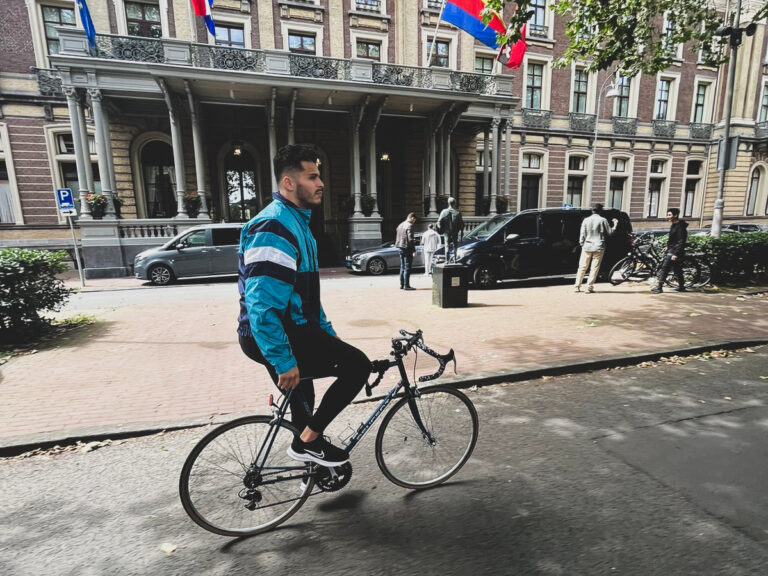Intro
After living in the Netherlands for 3 years, I want to share my knowledge and experience when it comes to the costs. The costs of living in the Netherlands depends on several factors. A good example of the factors are your location, lifestyle and personal preferences. However, here’s a general overview of the costs you might expect:
- Accommodation
- Utilities
- Food
- Transportation
- Healthcare
- Personal Expenses
- Taxes

1. Accommodation
Typically, housing costs are the largest expense. Renting an apartment in a city like Amsterdam or Rotterdam can cost an arm and a leg. Smaller villages may offer more affordable options. On average, in Amsterdam you might expect to pay anywhere from €1000 to €1200 for a studio. For a one-bedroom apartment, it costs between €1300 to €1500 per month. If you don’t mind flatmates, you can find a room for €800 to €1000. The prices I mentioned may vary depending on the location, even within Amsterdam. Please be aware of scammers online who may offer you a below the market prices. If it is too good to be true, its definitely not true. Keep in mind that the biggest portion of the costs of living in the Netherlands is going to the housing.

2. Utilities
This includes electricity, heating, water, garbage disposal, and internet. The cost depends on the size of your accommodation and your consumption habits. On average, utilities can add up to around €200 to €250 per month.
3. Food
Generally, grocery costs in the Netherlands are moderate. Buying groceries from supermarkets like Albert Heijn or Jumbo can be relatively affordable. Keep in mind that Moroccan & Turkish supermarkets offer fresher items for better prices. Let’s compare the prices of chicken breast between both supermarket options. In Jumbo, 400g will cost you around €5. On the other hand, 1000g in the Turkish/Moroccan supermarket is for €5. Roughly, food expenses for a single person could range from €200 to €400. My budget is €250 to €300 per month, buying most of my groceries from Moroccan & Turkish supermarkets. My grocery consists of different types of protein, vegetables & dairy.
4. Transportation
There is an extensive public transportation network, including trains, buses, trams, and metros. Monthly transportation costs can be expensive compared to neighboring countries. You may pay-as-you-go or have a monthly subscription. If you use public transport frequently within the city, expect to pay between €70 to €100. However, the price can be higher if you are using the metro, train and the bus together. My previous work location was not convenient. The office was only 15 KM away but it was a hustle with the public transportation. I had to use a metro, train and a bus. The monthly cost was €230, which is high. Make sure your employer is compensating some of the travel expenses.
If you are planning to use a bicycle, it is possible especially if your destination is within 20 mins. A bike rental monthly subscription will cost you around €25. I do recommend buying a second hand bicycle, it is cheaper. Check out my other blog that have all the info about bicycles here. Make sure the weather is good enough for a bike ride.
Owning a car is not cheap in the Netherlands. Let’s take an example of owning a small hatchback car. The road tax will be around €30 a month. Insurance will cost you approximately €35 a month. In some areas, you have to pay for a parking permit, and this is where it gets tricky. You can part for free, or as cheap as €16 per 6 months in some places. In the city center, it may cost between €290 per quarter, and as high as €250 a month for an indoor spot. You still need to pay for fuel, maintenance & APK.

5. Healthcare
Healthcare subscription is mandatory in the Netherlands. Everyone must have health insurance. The price can vary depending on your age, coverage options, and insurance provider. On average, you might expect to pay around €100 to €150 per month for basic health insurance. The higher your own risk you choose, the less you have to pay monthly. Very few employers cover some percentage of the health insurance.
6. Personal Expenses
This includes clothing, entertainment, dining out, etc… On average, you might budget around €200 to €500 or more per month for personal expenses. To break it down, dining out is going to cost you €30 to €70 on average. A gym membership is going to cost between €25 to €60 per month. Before you sign up for a gym membership, you must check my other article about gyms in the Netherlands here. A cup of coffee and a slice of cake in a nice cafe can cost you between €8 to €10. A sip of oat/coconut milk costs between €1 to €1.5.
If you are a fan of museums, an entrance can cost you between €17 to €25. There are plenty of concerts and events that take place in the country. The price of the ticket varies between €35 to +€70.

7. Taxes
The Netherlands has a progressive tax system. Your tax obligations will depend on your income, marital status, and other factors. Income tax rates can range from 37.1% to 49.5%, depending on your income level. However, you don’t need to worry much about this, as your employer can take care of your income taxes.
Summary
In a nutshell, I hope this give you an idea about the costs of living in the Netherlands. Keep in mind that these are rough estimates, and your actual expenses may vary. It’s essential to create a budget no matter where you live. Having a planned budget is necessary in the Netherlands. The country is expensive, but you can definitely lower your cost and enjoy what this country has to offer.
